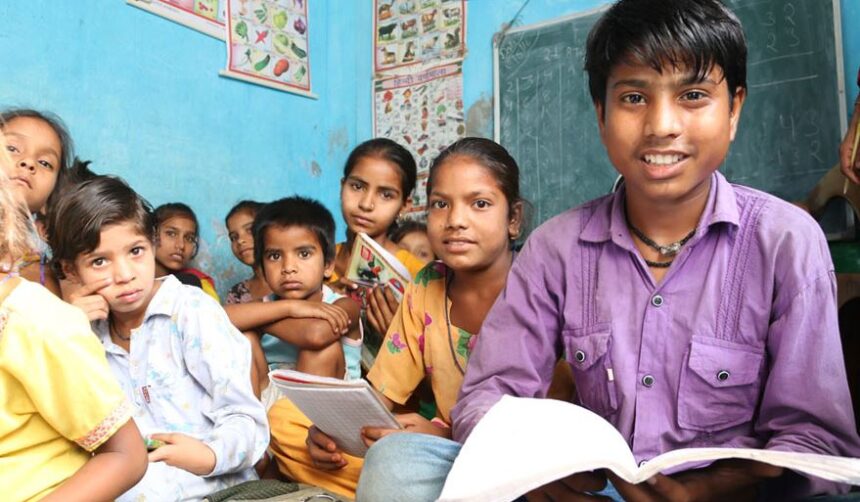Non-Profit Organizations (NPOs) in India play a vital role in addressing socio-economic issues, promoting sustainable development, and driving positive change. From alleviating poverty and improving healthcare to advocating for education and environmental protection, NPOs are at the heart of India’s development efforts. In this blog, we explore the top benefits and role of NPO in India and how they contribute to building a more inclusive and equitable society.
The Role of NPOs in India
1. Addressing Social Inequality
One of the primary roles of NPOs in India is to address social inequality. These organizations work tirelessly to uplift marginalized and underprivileged communities by providing access to essential services like education, healthcare, and clean drinking water. By advocating for equal rights and opportunities, NPOs play a significant role in bridging the socio-economic divide that exists in various parts of the country.
2. Promoting Education and Skill Development
Education is a key factor in transforming lives and fostering economic growth. NPOs in India are instrumental in creating educational opportunities for children and adults in remote and economically disadvantaged areas. By building schools, providing scholarships, and organizing vocational training programs, NPOs ensure that every individual has the chance to acquire knowledge and skills necessary for a better future.
3. Supporting Healthcare Initiatives
Healthcare remains a significant challenge in many parts of India, especially in rural areas. NPOs provide essential healthcare services such as immunization drives, health camps, and awareness programs on diseases like HIV/AIDS, tuberculosis, and malnutrition. They also work on improving maternal and child health, promoting mental health awareness, and ensuring access to affordable medical treatment for all.
4. Environmental Conservation
India faces numerous environmental challenges, including deforestation, pollution, and climate change. NPOs are at the forefront of environmental conservation efforts, promoting sustainable practices and raising awareness about the importance of preserving natural resources. These organizations collaborate with local communities to implement projects focused on afforestation, water conservation, and waste management, contributing to a greener and healthier environment.
5. Women Empowerment and Gender Equality
NPOs play a pivotal role in empowering women and promoting gender equality in India. By offering programs that focus on education, entrepreneurship, and legal rights, these organizations help women gain financial independence and break free from traditional gender roles. NPOs also work towards preventing gender-based violence and ensuring that women have equal access to opportunities in all aspects of life.
6. Disaster Relief and Humanitarian Aid
In times of natural disasters and emergencies, NPOs are among the first responders, providing immediate relief and assistance to affected communities. Whether it’s through food distribution, temporary shelter, or medical aid, NPOs are crucial in mitigating the impact of disasters and helping people rebuild their lives. Their role in disaster management is vital in ensuring that vulnerable populations receive the support they need during times of crisis.
Top Benefits of NPOs in India
1. Fostering Community Development
NPOs actively engage with local communities to identify and address specific needs. By working closely with grassroots organizations and local leaders, NPOs ensure that their initiatives are tailored to the unique challenges faced by different regions. This community-driven approach fosters sustainable development, enabling communities to become self-reliant over time.
2. Raising Awareness on Critical Issues
A major benefit of NPOs is their ability to raise awareness about important social issues. Through campaigns, seminars, and workshops, NPOs educate the public about pressing challenges such as child labor, human trafficking, environmental degradation, and mental health. By creating awareness, they inspire individuals and organizations to take action and contribute to the betterment of society.
3. Mobilizing Resources for Social Causes
NPOs have the unique ability to mobilize resources, including funds, volunteers, and expertise, from various sectors of society. They work with governments, businesses, and individuals to gather the resources needed to implement impactful projects. This ability to pool resources ensures that social causes receive the attention and support they require for long-term success.
4. Providing a Platform for Volunteerism
NPOs provide a platform for individuals to volunteer and contribute to social change. Whether through on-the-ground efforts or virtual support, volunteering with NPOs allows people to engage with causes they are passionate about, gaining valuable experience and personal fulfillment. Volunteers form the backbone of many NPO initiatives, helping organizations extend their reach and achieve greater impact.
5. Accountability and Transparency
A significant advantage of NPOs is their commitment to accountability and transparency. Many NPOs follow strict ethical standards in managing their funds and resources, ensuring that donations are used for their intended purposes. This transparency builds trust with donors, volunteers, and beneficiaries, fostering long-term relationships that enable the organization to grow and sustain its operations.
6. Promoting Sustainable Development Goals (SDGs)
NPOs in India play a critical role in advancing the United Nations Sustainable Development Goals (SDGs). From reducing poverty and hunger to ensuring clean water and sanitation, NPOs are working towards achieving these global targets. Their efforts contribute directly to India’s development objectives, aligning local initiatives with international priorities for a more sustainable and just world.
Challenges Faced by NPOs in India
Despite their significant contributions, NPOs in India face numerous challenges, including funding constraints, bureaucratic hurdles, and a lack of public awareness. Many NPOs rely heavily on donations and grants to operate, which can limit their ability to scale up their activities. Moreover, navigating regulatory requirements can be a complex process for organizations, particularly smaller, grassroots NPOs.
In response to these challenges, NPOs are continuously evolving, adopting innovative fundraising models and leveraging technology to increase their reach and impact. Collaborative efforts between NPOs, the private sector, and the government are essential in overcoming these obstacles and ensuring the sustained growth of the non-profit sector.
Conclusion: The Indispensable Role of NPOs in India
The role of NPOs in India cannot be overstated. These organizations are the backbone of social change, tackling some of the most pressing challenges faced by the country. From improving healthcare and education to promoting gender equality and environmental sustainability, NPOs are indispensable in creating a more equitable and just society. Their ability to mobilize resources, foster community development, and raise awareness makes them a powerful force for positive change.
By supporting NPOs, whether through donations, volunteering, or advocacy, individuals and businesses can play an active role in driving social progress. In a rapidly changing world, the contributions of NPOs will continue to be pivotal in shaping the future of India.


